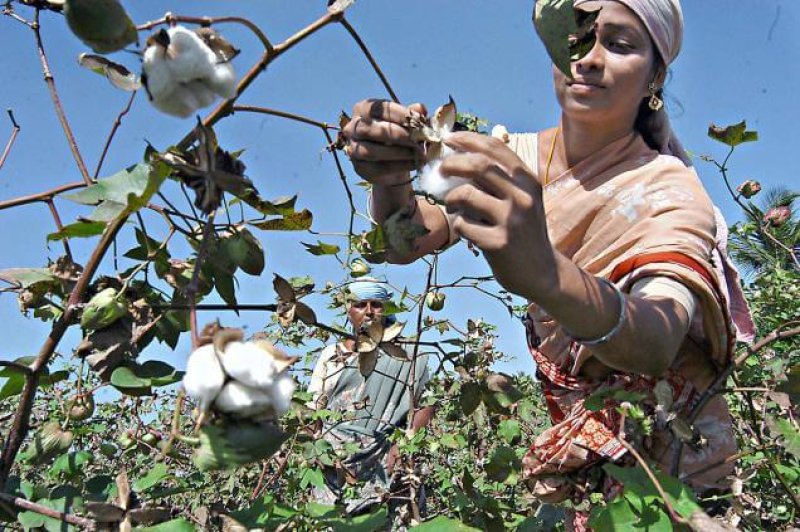The cultivation of Bt cotton, a genetically modified, insect-resistant cotton variety, is a risky affair for Indian farmers practising rain-fed agriculture, according to a latest study published by California-based agricultural scientists in the journal Environmental Sciences Europe.
Annual suicide rates of farmers in rain-fed areas are directly related to increase in Bt cotton adoption, say the study’s authors Andrew Paul Gutierrez, Luigi Ponti, Hans R. Herren, Johann Baumgärtner and Peter E. Kenmore, who are associated with the University of California, Berkeley, and the Centre for the Analysis of Sustainable Agricultural Systems, California.
Though cultivating the Bt cotton variety may be economic in irrigated areas, the costs of Bt seed and insecticide increase the risk of farmer bankruptcy in low-yield rain-fed settings.
The study challenges the common assumption in economic analyses that cotton pests must be controlled to prevent monetary losses, thus encouraging Bt cotton adoption. The annual emergence of the key cotton pest pink bollworm in spring is poorly timed to attack rain-fed cotton and large populations of the pest fail to develop in non-Bt rain-fed cotton, the authors note. This reduces and usually prevents the need for Bt cotton and disruptive insecticides. The authors recommend that high-density short-season cottons could increase yields and reduce input costs in irrigated and rain-fed cotton.
The GLP aggregated and excerpted this blog/article to reflect the diversity of news, opinion and analysis. Read full, original post: Deconstructing Indian cotton: weather, yields, and suicides































